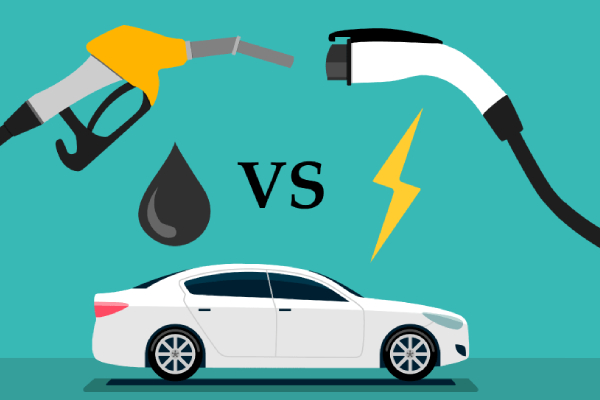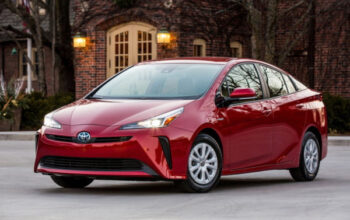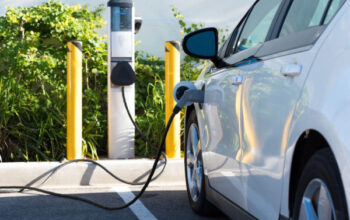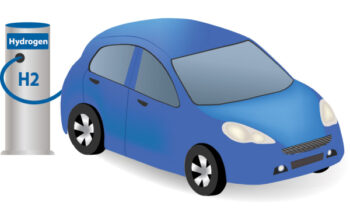Electric Cars Vs Hybrid Cars: How To Decide The Better Option
An introduction to hybrid cars: What are they and how do they work?
The name itself says it all: Hybrid cars are a combination of electric cars and traditional gas-powered cars. A hybrid vehicle thus has the combined power of an electric motor and an internal combustion engine or an ICE. But unlike an electric vehicle, the hybrid car cannot be plugged in to charge the battery. Instead, the battery is charged by regenerative braking and the internal combustion engine that provides supplemental electric power. The best thing about hybrids is that the driver can choose to use both engines simultaneously or simply rely on a single engine, depending on the driving type.
Types of hybrids cars available in the market
Generally, there are two types of hybrids that are currently available:
- Standard hybrid cars.
- Plug-in hybrid cars or Plug-in Hybrid Electric Vehicles(PHEVs)
Standard hybrids are just what we explained above- they cannot be charged and they run on the power provided by the ICE. PHEVs are quite similar to electric vehicles. The batteries on standard hybrids are much smaller than those of the PHEVs. And like electric vehicles, PHEVs rely completely on their battery power.
What’s the good news about hybrid cars?
Hybrids are engineered to supplement gasoline driving and use the battery charge when necessary. Some hybrids are designed to use only the battery mode, but this model is mostly used for low-speed cars or for cars used for short ranges. Most hybrids are designed to draw power from the electric motors when they need to cruise below certain speeds. This is one of the reasons why people prefer hybrids if they live in cities with deplorable traffic conditions.
Pros and cons of owning a hybrid car
Pros:
- Hybrids are an ideal investment for people who depend on cars for short commutes.
- Although the electric battery is a small one, it can power the vehicle for short trips and intercity driving, which makes it a great replacement for gasoline-powered vehicles.
- Ideal for those looking for cleaner energy options.
- Hybrid cars have a higher resale value.
- Regenerative braking in hybrids cars works two ways: it not only recharges the battery, but it also extends the life of the brakes.
- Hybrid cars are manufactured from light-weight materials. So they do not cost as much as the conventional models.
Cons:
- Hybrid cars are definitely not ideal if you are looking to save on gas expenses on long journeys. The battery energy is limited and you will end up making those trips to the gas station.
- Hybrids are for those looking for an economical investment. These cars are not built for speed or performance.
- Most hybrids are devoid of suspensions and other performance-enhancing features.
- Hybrids are expensive to maintain and require experienced professionals for the job.
Electric Vs Hybrid cars: How do they compare?
Hybrids and electric cars have one thing in common: the presence of a battery. However, there are some stark differences in both vehicles.
Fuel Cost comparison
When it comes to expenses on fuel, the electric car is the clear winner. There is absolutely nil need for diesel or petrol. All one has to do is charge the battery, which will most certainly cost much less than fossil fuel energy. Besides, many governments are offering incentives to those investing in electric cars as they perceive it as a sustainable energy option. The downside of electric cars, however, is that there are lesser EV charging stations and that presents an ever-present risk of running out of charge.
Hybrids are blessed with the dual power of gas and battery energy. But the battery energy is limited and the driver has to eventually rely on gas.
Maintenance cost comparison
With regard to maintenance costs, both types compete neck to neck, as both are at the risk of battery degradation. Universal car issues like insurance, periodical service charges, tire changes, etc are common for both models.
Hybrids may experience issues with the ICE, which can burn a hole in your pocket. Additionally, changing of coolant, engine oil, transmission fuel, and belt replacements will become inevitable expenses with hybrid cars.
On the other hand, EVs may not have ICE troubles, but they will have their own share of battery woes. Complex electric batteries are quite expensive and although owners need not worry about replacing their batteries there is no complete guarantee that the need won’t arise.
What’s the verdict?
We cannot be partial to any one type, because the preference depends entirely on how the owner will use them. Maybe, for now, electric cars may lag behind hybrids because of the lack of adequate EV charging stations. But there will come a time when there will be as many charging stations as gas stations. This will give EVs the upper hand. In many ways, both types are ideal for environmentally conscious people who believe in sustainable, clean energy.




